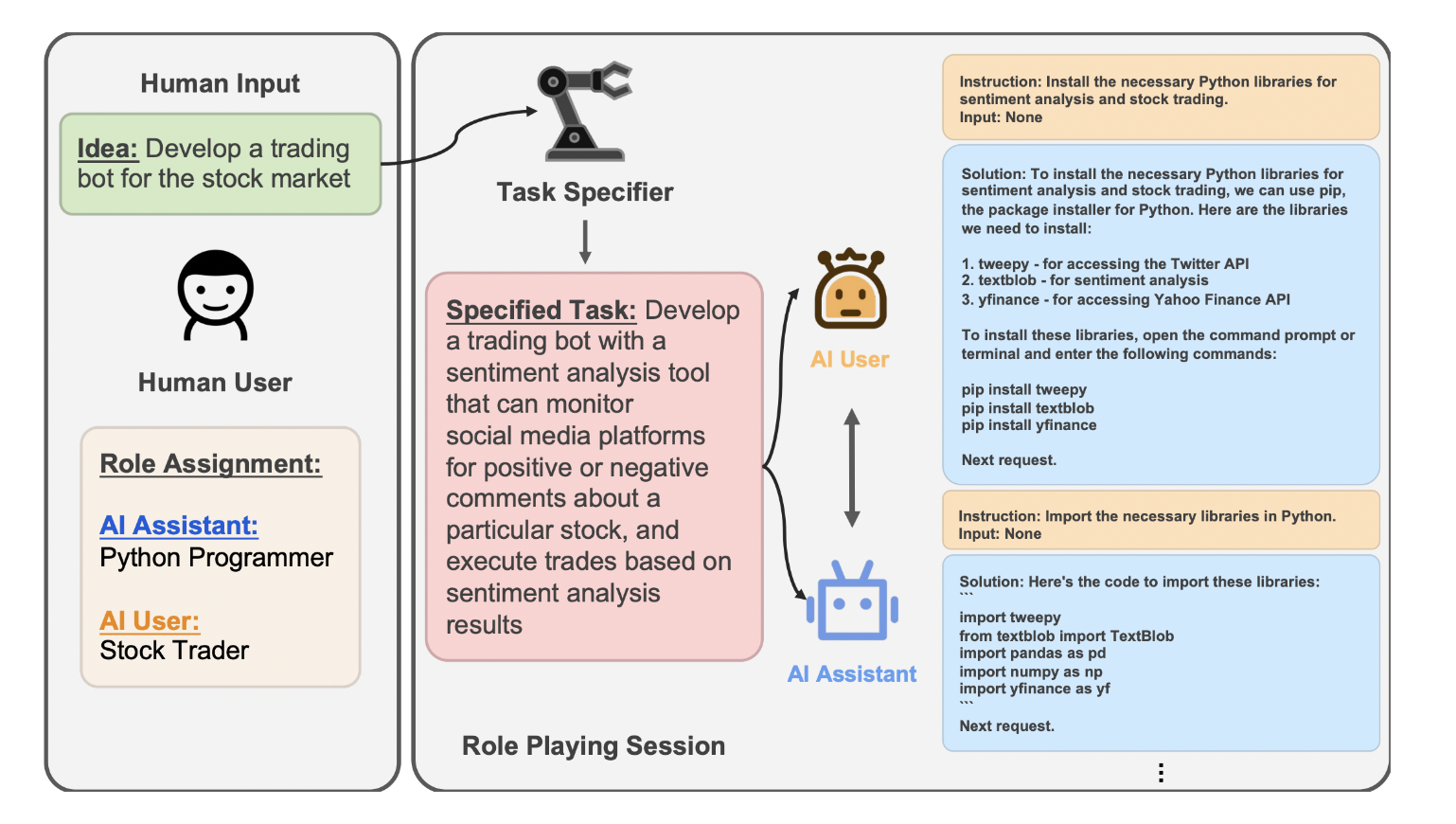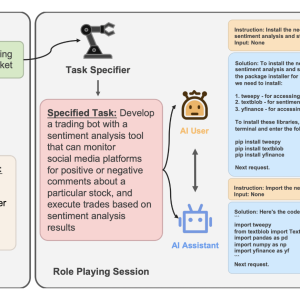

CAMEL-AI has recently announced the release of CAMEL, a groundbreaking communicative agent framework designed to enhance the scalability and autonomous cooperation among language model agents. The rapid progression of conversational and chat-based language models has ushered in the era of complex problem-solving capabilities. However, these advancements have predominantly depended on substantial human input to guide and direct conversations, posing a challenge in efficiency and scalability. CAMEL-AI addresses this challenge by introducing an innovative approach that minimizes the need for constant human intervention, thereby fostering a more autonomous interaction among agents.
CAMEL’s heart lies in the novel role-playing framework, a unique method that utilizes inception prompting to steer chat agents toward task completion while aligning with human intentions. This framework not only ensures consistency in task execution but also facilitates the generation of conversational data, which is pivotal for studying the behaviors and capabilities of chat agents. CAMEL provides a scalable solution for investigating and understanding the dynamics of multi-agent cooperation by employing role-playing techniques.
CAMEL-AI’s release of CAMEL brings several key contributions to the field of AI:
- Novel Communicative Agent Framework: The introduction of the role-playing framework represents a significant advancement in the study and development of communicative agents, enabling more efficient and autonomous cooperation.
- Scalable Approach: CAMEL offers a scalable method for analyzing multi-agent systems’ cooperative behaviors and capabilities, providing valuable insights into their potential and limitations.
- Open-Source Library: To support ongoing research and development, CAMEL-AI has made its library publicly available on GitHub. This open-source initiative encourages collaboration and innovation within the AI community.
- Comprehensive Documentation and Support: The CAMEL library provides extensive documentation, examples, and support for various agents, tasks, prompts, models, and simulated environments, facilitating ease of use and integration.
CAMEL can be installed from PyPI or directly from the source using poetry or conda. The installation process is straightforward & well-documented, ensuring that researchers and developers can quickly get started with the framework. Additionally, CAMEL supports integration with various platforms and tools, including HuggingFace agents and Docker, further enhancing its versatility and applicability.
CAMEL-AI emphasizes community involvement and collaboration. The project invites researchers, developers, and enthusiasts to join their community through Slack, Discord, and WeChat platforms. By fostering an inclusive and collaborative environment, CAMEL-AI aims to push AI research and development, particularly in studying communicative agents and AI societies.
In conclusion, CAMEL by CAMEL-AI is a significant step forward in the quest for more autonomous and cooperative AI systems. CAMEL can transform the landscape of AI research and application by reducing reliance on human input and introducing scalable methods for studying agent behavior. As the community continues to explore and expand upon this framework, the future of multi-agent systems looks promising.
Check out the GitHub and Colab Notebook. All credit for this research goes to the researchers of this project. Also, don’t forget to follow us on Twitter.
Join our Telegram Channel and LinkedIn Group.
If you like our work, you will love our newsletter..
Don’t Forget to join our 46k+ ML SubReddit
The post CAMEL-AI Unveils CAMEL: Revolutionary Multi-Agent Framework for Enhanced Autonomous Cooperation Among Communicative Agents appeared first on MarkTechPost.